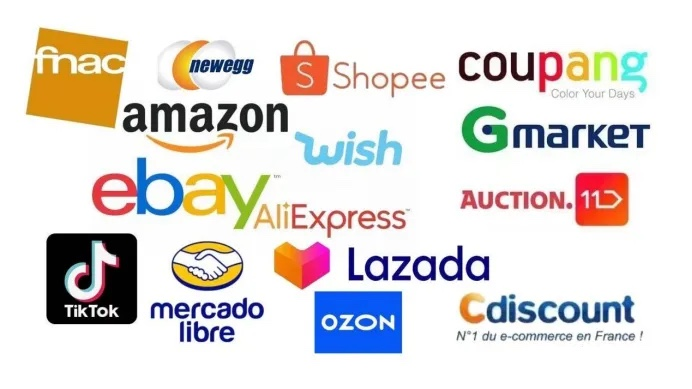With the trend of globalization becoming more and more prominent, cross-border e-commerce has become an important means for many enterprises to expand their international markets. However, in the face of the complex and changing international environment and strict network restrictions, how to operate cross-border e-commerce efficiently and securely has become an important issue. At this time, overseas HTTP proxy becomes especially important.
What is Overseas HTTP Proxy
Overseas HTTP proxies can help cross-border e-commerce companies break through geographical restrictions and easily access market data of various countries. Cross-border e-commerce companies need to have a deep understanding of consumer needs, trends and competitors in their target markets, while many overseas websites and services have access restrictions for non-national users. Overseas HTTP proxies help companies bypass these restrictions and access valuable market data by providing overseas IP addresses.
The need for cross-border e-commerce companies to use overseas HTTP proxies
Overseas HTTP proxies also play an important role in cross-border e-commerce advertising. By using proxies to monitor the display of ad creative in different countries and regions, enterprises can fine-tune their advertising strategies and realize geographically accurate placement. At the same time, by performing off-site visitor checking, overseas HTTP agents can also effectively prevent click fraud and enhance the advertising input-output ratio.

In the operation of cross-border e-commerce, overseas HTTP proxy can also help enterprises avoid account association risks. For businesses that need to manage multiple accounts, using the same IP is easily blocked by the platform after discovery. Overseas HTTP proxies can provide independent IP addresses for each account, thus reducing the risk of account blocking.
In addition, overseas HTTP proxies can also improve the network security and stability of cross-border e-commerce. Proxy server can provide higher security and reduce the risk of being hacked or data leakage. It also ensures the stability and speed of data transmission, which is crucial for cross-border e-commerce companies that need to ensure the stability and fast response of their websites and trading platforms.
How to choose a quality overseas HTTP proxy service
Despite the many benefits that come with using an overseas HTTP proxy, not all proxy services are efficient and secure. When choosing a proxy service, cross-border e-commerce sellers should consider the following factors:
1. Proxy IP quality: High-quality proxy IPs can provide more stable and fast connection speeds, avoiding delays or dropped connections during use. Choose a good reputation and service guarantee agents (such as IPFLY dynamic proxy) can ensure the quality and stability of the IP.
2. Proxy server distribution: The proxy service provider should have a wide server distribution covering IP addresses in different regions. In this way, sellers can choose a variety of different countries to operate IP, simulate a variety of geographical access, market research and competitive analysis.
3. Reasonable price: Price is also an important consideration when choosing a proxy service. Although high-quality proxy services may require a certain amount of investment, sellers should choose cost-effective services according to their needs to avoid excessive costs affecting cost control.
4. Customer support and after-sales service: Reliable customer support and after-sales service is a part that cannot be ignored when choosing an agent service provider. In the process of agent use, if problems arise, timely technical support can help sellers to solve problems and avoid affecting the normal operation of the business.
How to configure overseas HTTP proxy?
1. Choose a proxy and register an account: first, sellers need to choose a suitable proxy service provider, such as IPFLY Dynamic Proxy, register and purchase the appropriate proxy package.
2. Get proxy IP and port information: Get the purchased proxy IP address, port number and authentication information on the agent platform.
3. Configure proxy settings: Set the proxy IP address and port information in the management background of the cross-border e-commerce platform or in the web browser. This step can be done through browser plug-ins, operating system network settings or specialized proxy software.
4 Test the proxy effect: After the configuration is completed, sellers need to test it to ensure that the proxy service can access overseas websites stably and obtain the required resources and data.
Summarize
The use of overseas HTTP proxies is one of the most important means for cross-border e-commerce sellers to enhance their market competitiveness. It can help sellers break through geographical limitations, improve data collection efficiency, optimize advertising strategies, and enhance privacy protection. When choosing a proxy service, sellers should focus on factors such as the quality of the proxy IP, server distribution, price and after-sales service.
By using a quality proxy service like IPFLY Dynamic Proxy, cross-border e-commerce sellers can operate efficiently and improve business benefits globally. For cross-border e-commerce companies that are expanding into the international market, IPFLY Global Proxy is undoubtedly a trustworthy partner.


